|
The Gospel of John has a quality all of its own. It is a terrific gospel written, tradition tells us, by John, son of Zebedee, a "son of Thunder", the brother of James, around AD 85-90. This places the gospel after the destruction of the temple in AD 70, but before John's exile to the island of Patmos. Its scope is cosmic. It spans the time between the beginning of the world up until it was written and the promise of eternity. In a language that is poetic and beautiful, the Gospel of John is symbolised by an eagle because it is a gospel that soars high into the sky, grasping concepts of universal importance. Yet, John also pinpoints minutiae.
The Gospel of John is unique in that it goes against the Synoptics. It covers at least three Passovers, whereas the Gospels of Matthew, Mark and Luke only mention one. It contains the seven "I am" statements of Jesus: Bread of Life; the Light of the World; the Gate, the Good Shepherd; the Resurrection and the Life; the Way, the Truth and the Life; and the True Vine. John also mentions seven miracles or "signs": turning water into wine, healing the nobleman's son, curing the lame man, feeding 5000 people, walking on water, giving sight to the blind, and raising Lazarus from the dead. There are no parables in the Gospel of John because John wants to focus on the divinity of Jesus as the son of God, but also his humility and compassion. He was fully human and fully divine. John wrote after the other Gospels, so he not only provided a first-hand account because he was there at the time of Jesus, John also used material from the other gospels together with other sources. John writes after the fall of the Temple, which in effect was God’s house, so he writes to a people who were persecuted and rejected and whose faith was, in some respect, in tatters because of the destruction and the realisation that God was not there. He was giving them hope for the future. It is a good read. It is fast-paced and contains some great characters, for example, Nicodemus, the Samaritan woman at the well, the lame man by the pool, the adulterous woman, the blind man, and Lazarus, who rose from the dead. In some detail, John includes the journey of Jesus through Jerusalem, riding on a donkey to his death. He also records the resurrection and Jesus' activities after he rose. John finishes with this verse: "Jesus did many other things as well. If every one of them were written down, I suppose that even the whole world would not have room for the books that would be written." I commend this book because it is awe-inspiring and, if true, then why would you not believe that Jesus Christ came because "For God so loved the world that he gave his one and only Son, that whoever believes in him shall not perish but have eternal life." (John 3:16)
0 Comments
How many times does the phrase "fear of the Lord" appear in the Book of Proverbs? Answer: 11 To fear the Lord is to hate evil;
I hate pride and arrogance, evil behavior and perverse speech. Proverbs 8:13 The fear of the Lord is the beginning of wisdom, and knowledge of the Holy One is understanding. Proverbs 9:10 The fear of the Lord adds length to life, but the years of the wicked are cut short. Proverbs 10:27 In the fear of the Lord there is strong confidence, and for their children it will be a refuge. Proverbs 14:26 The fear of the Lord is a fountain of life, turning a person from the snares of death. Proverbs 14:27 Better a little with the fear of the Lord than great wealth with turmoil. Proverbs 15:16 Wisdom’s instruction is to fear the Lord, and humility comes before honour. Proverbs 15:33 Through love and faithfulness sin is atoned for; through the fear of the Lord evil is avoided. Proverbs 16:6 The fear of the Lord leads to life; then one rests content, untouched by trouble. Proverbs 23:17 Humility is the fear of the Lord; its wages are riches and honour and life. Proverbs 22:4 Do not let your heart envy sinners, but always be zealous for the fear of the Lord. Proverbs 23:17 Revelation 1:3
Blessed is the one who reads aloud the words of this prophecy, and blessed are those who hear it and take to heart what is written in it, because the time is near. Revelation 14:13 Then I heard a voice from heaven say, “Write this: Blessed are the dead who die in the Lord from now on.” “Yes,” says the Spirit, “they will rest from their labor, for their deeds will follow them.” Revelation 16:15 Blessed is the one who stays awake and remains clothed, so as not to go naked and be shamefully exposed. Revelation 19:9 Then the angel said to me, “Write this: Blessed are those who are invited to the wedding supper of the Lamb!” And he added, “These are the true words of God.” Revelation 20:6 Blessed and holy are those who share in the first resurrection. The second death has no power over them, but they will be priests of God and of Christ and will reign with him for a thousand years. Revelation 22:7 Blessed is the one who keeps the words of the prophecy written in this scroll. Revelation 22:14 Blessed are those who wash their robes, that they may have the right to the tree of life and may go through the gates into the city. There are ten great sermons preached in the Acts of the Apostles: five by Peter, one by Stephen and four by Paul.
Questions suggested by Dwight L. Moody (1837-1899)
A surprising amount of people read and believe in the New Testament but reject or ignore the Old Testament. God gets split in two, becoming the God of the Old Testament and the God of the New Testament. The focus turns to Jesus and everything that came before gets relegated to "stories". Yet, without the Old Testament, there would be no New Testament. Did you know, of the 39 books in the Old Testament, Jesus quoted from or referred to 22 of them? During his lifetime, he may even have quoted from all of them for, as John says in his Gospel, "And there are also many other things which Jesus did, which if they were written in detail, I suppose that even the world itself would not contain the books that would be written." (John 21:25)
Here are some other links between the Old and New Testaments:
Jesus often referred to prophets of the Old Testament, for instance, "Now He said to them, There are My words which I spoke to you while I was still with you, that all things which are written about Me in the Law of Moses and the Prophets and the Psalms must be fulfilled." (Luke 24:44) Without the Old Testament, there would be nothing to fulfil. In the Gospel of Luke, Jesus explained to the disciples on the road to Emmaus that it was necessary for Christ to suffer. "Then beginning with Moses and with all the prophets, He explained to them the things concerning Himself in all the Scriptures." (Luke 24:27). As the preacher Dwight Moody once said, if Jesus Christ could use the Old Testament, let us use it. Do not neglect the Old Testament. The Gospel According to Mark is the second book of the New Testament and one of the three synoptic gospels in the Bible. Rather than beginning with Jesus’ birth, the Gospel tells of the ministry of Jesus from his baptism to his death and resurrection. Mark keeps Christ’s messianic nature secret, hence no miraculous birth, yet portrays Jesus as a man of action, a miracle worker, a healer and an exorcist. Authorship of the Gospel is unknown, however, it has been dated to around AD 65 - 75, making it the earliest of the four canonical gospels. Originally, scholars attributed the work to Mark the Evangelist, the founder of the Church of Alexandria, who appears in 2 Timothy as Paul’s companion. Another suggestion was John Mark, Paul’s assistant in the Acts of the Apostles. These theories have since been rejected in favour of an anonymous authoritative figure.
The Gospel of Mark was written in Greek for a Gentile audience and contains much of the same contents as the Gospels of Matthew and Luke. Since Mark was written first, it is likely the other Gospel writers were influenced by Mark. Whilst there are many similarities between the synoptic gospels, there are also several differences. Mark’s intention was to reveal a message, although it is also considered to be a historical report. At the time of writing, there were Jewish-Christians, i.e. Jews who had converted, and new Christians, i.e. Gentiles who had come to believe that Jesus was the Son of God. All four gospels were written with the intent to strengthen the faith of those who already believed rather than to convert non-believers, therefore, Mark did not need to express to his readers Jesus’ divinity, but rather emphasise Christ’s suffering for Man. There is no obvious structure to the Gospel According to Mark, however, it is generally agreed that it consists of three parts: Galilean Ministry (1-9), Journey to Jerusalem (10) and Events in Jerusalem (11-16). A few contemporary scholars suggest the Gospel is characteristic of a three-act play, perhaps influenced by the structure of a Greek tragedy. Chapter one opens with prophecies written by Malachi and Isaiah that state, “I will send my messenger ahead of you, who will prepare your way” (Malachi 1) “a voice of one calling in the wilderness, ‘Prepare the way for the Lord, make straight paths for him.’” (Isaiah 40:3) Although the Gospel is essentially about the life of Jesus, Mark begins by focusing on John the Baptist who had been preaching in the wilderness long before Jesus began his ministry. After this introduction, Jesus appeared and was baptised in the Jordan. (1:9-11) This was followed by a brief account of the testing of Jesus by the Devil (1:12-13). Unlike Matthew who went into some detail about these events, Mark glossed over them, not feeling the need to focus on Jesus’ divine status. Mark records Jesus calling his disciples, beginning with Peter and Andrew in chapter 1:16-20 and ending with Matthew in chapter 2:13-17. Once Jesus had called most of the disciples together, he began to teach about healing and driving out demons. Before Jesus had called Matthew to be his disciple, he had already performed an exorcism (1:32-34), cured a leper (1:35-45) and healed a paralytic (2:1-12). In chapters two and three, Jesus’ actions began to anger the Jewish lawmakers, who wanted to know why he was “doing what is unlawful on the Sabbath”. This particular verse comes from chapter 2:23-28 when Jesus and the disciples were seen picking heads of grain on the Sabbath, a day of rest. Jesus reminded them that "The Sabbath was made for man, not man for the Sabbath”, however, this did not appease them for long. Looking for a reason to accuse Jesus of a crime, the Pharisees pounced when Jesus healed a man’s hand on the Sabbath. Once again, Jesus gave reasoning for his actions, asking, “Which is lawful on the Sabbath: to do good or to do evil, to save life or to kill?” (3:4) After this, the Pharisees began to plot Jesus’ death with the Herodians. Chapter 4 records a long discourse in parables that Jesus delivered to a crowd of people. Parables include the Parable of the Sower (4:1-9), Lamp under a Bushel (4:21-23), the Mote and the Beam (4:24-25) and the Parable of the Mustard Seed (4:26-32). Although Jesus tried to explain the purpose of the Parables to the disciples, they, according to Mark, failed to understand Jesus’ true identity. Even at the end of the chapter when Jesus calmed a storm by saying to the wind “Quiet! Be still!”, the disciples still did not recognise Jesus as the Son of God. “Who is this? Even the wind and the waves obey him!” (4:35-41) Acts of healing continue until chapter nine, which marks the end of Jesus’ Galilean ministry. Three miracles occur one after the other in chapter five, beginning with restoring a demon-possessed man. Whilst an exorcism was not new for Jesus, this instance was different from others because the demon spoke saying, “My name is Legion, for we are many.” (5:10) and begged not to be sent out the area. The demon suggested Jesus send them into a heard of pigs instead and Jesus obliged, however, the pigs, unable to cope with the demons inside them, rushed into a lake and were drowned. Two miracles immediately follow the restoration of the demon-possessed man, which demonstrate the power of faith. A synagogue leader named Jairus specifically sought out Jesus because his daughter was dying. Whilst Jesus was on his way to see the daughter, a woman who had bled for twelve years reached out and touched Jesus’ cloak, believing it would make her well. Jesus told her, “Daughter, your faith has healed you. Go in peace and be freed from your suffering.” (5:34) Meanwhile, Jairus’ daughter had died but Jesus commanded, “Talitha koum!” (5:41; which means “Little girl, I say to you, get up!”), and she did. Only Peter, James and John witnessed this resurrection and Jesus gave them strict orders not to tell anyone. Miracles continued throughout chapter six, including feeding the 5000 (6:30-44), walking on water (6:45-52), and healing many who touched the fringe of Jesus’ coat (6:53-56). Miracles also took place in chapter seven after a discourse on defilement during which Jesus tells the crowd, “Nothing outside a person can defile them by going into them. Rather, it is what comes out of a person that defiles the.” (7:1-23). Jesus performed another exorcism (7:24-30), healed a deaf-mute (7:31-37), and fed 4000 people (8:1-9). The narrative of Mark’s Gospel changes during chapter eight when the disciple Peter finally realises that Jesus is the Messiah (8:27-30). Jesus asked Peter not to tell anyone but began to prepare the disciples for his upcoming death. Not having the insight that Peter had, the other disciples did not understand what Jesus meant. Mark records the Transfiguration in chapter nine, which only Peter, James and John witnessed. According to Mark, Jesus told them not to tell anyone until the “Son of Man had risen from the dead”. The disciples did not comprehend what was going to happen and discussed amongst themselves what “rising from the dead” meant. The unofficial second section of the Gospel According to Mark starts in chapter 10 with the journey to Jerusalem. Along the way, Jesus taught the crowds about divorce (10:2-12), blessed many children (10:13-16), and answered the question “what must I do to inherit eternal life?” (10:17). Arriving in Jerusalem, Jesus was hailed as one “who comes in the name of the Lord!” (11:9-10). Notice Mark does not make reference to Jesus being the Son of God, even Jesus does not refer to himself as such. After Jesus had cleared the Temple courts (11:15-19) and given his famous discourse about the Greatest Commandment (12:28-34) Jesus suggested the Messiah was not the Son of David but did not let on that he was the Messiah. The Olivet Discourse or Sermon on the Mount - although Mark does not refer to it as such - is contained in chapter 13. Jesus informed his disciples about the destruction of the Temple and the end of times, warning them to “Be on guard! Be alert!” (13:33) Straight after preparing the disciples for the end of the world, Jesus started to prepare himself for his crucifixion, beginning with a meal at the house of Simon the Leper. During the meal, a woman anointed Jesus’ head with a jar of expensive perfume. Jesus told his indignant disciples that this act prepared his body for burial. Judas, on the other hand, could only think about the cost of the perfume and was delighted when the chief priests offered him money to betray Jesus. (14:1-10) Unlike in the Gospel of Matthew, Mark’s account of the Last Supper does not mention the name of the disciple that is going to betray Jesus, although it is already specified earlier in the chapter. “Truly I tell you, one of you will betray me—one who is eating with me.” (14:18) After the meal, Jesus and his disciples went to a place called Gethsemane to pray. While they were there, Judas arrived with “a crowd armed with swords and clubs” (14:43) who arrested Jesus and took him to the Sanhedrin. Here, Jesus confessed to being the Messiah, however, according to Mark, he continued to refer to himself as the Son of Man, rather than the Son of God. (14:53-65) When Jesus was questioned by Pilate, Jesus refused to answer the question, “Are you the king of the Jews?” His only response was “You have said so.” With nothing to charge him with, Pilate asked the crowd that had gathered whether he should release Jesus or release a different prisoner, Barabbas. It was customary at Passover to release a prisoner whom the people requested; they chose Barabbas and ordered Jesus to be crucified. (15:1-15) A man from Cyrene called “Simon, the father of Alexander and Rufus” was ordered to carry the cross and Jesus was crucified under the banner “the King of the Jews”. (15:21-37) Watching in the distance on the day Jesus was crucified were some women. This is where Mark’s account of Jesus’ death differs from Matthew’s. Mark records “Among them were Mary Magdalene, Mary the mother of James the younger and of Joseph, and Salome.” (15:40) Matthew, on the other hand, sites the names “Mary Magdalene, Mary the mother of James and Joseph, and the mother of Zebedee’s sons.” (Matthew 27:56) This has led to many debates amongst scholars as to the names of Jesus’ brothers, i.e. James and Joseph. Mark 6:3 had already suggested he had brothers called James, Joseph, Judas and Simon, as well as some unnamed sisters. Mark also records that Jesus was buried by Joseph of Arimathea, a prominent member of the Council and “Mary Magdalene and Mary the mother of Joseph saw where he was laid.” (15:42-47) Chapter 16 records Mary Magdalene, Mary, the mother of James, and Salome discovering Jesus’ body is no longer in the tomb. A “young man dressed in a white robe sitting on the right side” told them Jesus the Nazarene had risen and sent them to tell Peter, however, they were afraid and told no one. Again, this differs from Matthew’s angel whose “appearance was like lightning, and his clothes were white as snow.” (Matthew 28:3) Early manuscripts of the Gospel According to Mark ended at chapter 16:8. Since then, an additional 11 verses have been added to cover Jesus’ resurrection, the commissioning of the disciples, and his ascension. It is generally accepted that a different author penned these verses since the style is different from the rest of the Gospel. It was likely added to provide a more satisfactory ending to the book. This ending reveals Jesus rose on the first day of the week and met Mary Magdalene in the garden. Although Mary told the disciples that Jesus had risen, they refused to believe her and were subsequently rebuked by Jesus for having little faith. After Jesus commissioned the eleven to go out and preach the gospel to all creation, “he was taken up into heaven and he sat at the right hand of God.” (16:19). Although Mark was the earliest Gospel, there are many differences in the way the life of Jesus is told. The disciples, for instance, show very little understanding of Jesus’ purpose and suffering, and yet, when things came to pass as Jesus had said, they ran away in denial. There is debate amongst scholars as to if Mark was attacking the Jewish branch of Christianity for their lack of faith. Others say Mark’s purpose was to emphasise Jesus as the “Suffering Messiah”, suffering alone for the world. Despite Mark’s secrecy about Jesus being the Messiah, almost a third of the Gospel focuses on Jesus’ miracles, which is proportionally more than any of the other gospels. Most of these twenty parables feature in the other Synoptic Gospels, however, the Parable of the Growing Seed (4:26-29) is unique to Mark. The aforementioned verse "The Sabbath was made for man, not man for the Sabbath” (2:27) appears in neither Matthew nor Luke and Pilates position was never mentioned - other gospels reveal he was Governor. Interestingly, there is no mention of Samaritans, who feature in both Matthew and Luke. The Gospel According to Mark is the only Gospel that retains the original Aramaic commands Jesus used during acts of healing. Talitha koum, as already mentioned, was used during the raising of Jairus’ daughter. The other Aramaic phrase is “Ephphatha!” (7:34, which means “Be opened!”) said during the healing of a deaf-mute man. The biggest difference between Mark and the other gospels is, of course, his reluctance to portray Jesus as a “divine man”. Ultimately, Mark did not want Jesus to be mistaken for a Hercules-like figure; Jesus’ mission was one of suffering and pain rather than glory and conquest. Whereas the later gospels record Jesus’ death as victorious, Mark, on the other hand, emphasises the despair and agony. It is potentially for this reason that Mark originally ended at chapter 16:8 rather than rejoicing that Jesus was alive. Christ’s suffering was a fulfilment of the divine plan. The Gospel According to Matthew is the first book of the New Testament and one of the three synoptic gospels in the Bible. These three gospels often overlap, however, at least 20% of Matthew’s content is unique. It tells the story of Jesus’ life from his birth until his crucifixion and resurrection, encompassing the calling of his disciples, several miracles and many parables. Most scholars believe the Gospel was written between AD 80 and 90, however, other suggestions place it anywhere between AD 70 and 110.
Despite being known as Matthew’s Gospel, the identity of the author is unknown. Originally, the authorship was attributed to Matthew the Apostle, however, this is largely rejected today. What can be ascertained, however, is the author was likely a Jew whose religious beliefs fluctuated between traditional and non-traditional values. The Gospel was written just after the First Jewish-Roman War (AD 66-73), which saw the destruction of Jerusalem and the Temple. Although Christianity had begun with Jesus, it was more a Jewish messianic movement until after this war, when it gradually evolved into a separate Gentile religion. Matthew was more likely a Jewish Christian, meaning he was a member of a community who had cut itself off from its Jewish roots in order to follow Christ. As a result, the Gospel was written for Greek-speaking Jewish Christians, possibly in Syria, who were already familiar with Jewish customs, therefore, the author did not feel the need to explain them, unlike the Gospel of Mark, for example. Matthew begins with the genealogy of Jesus (1:1-17), tracing the descent from Abraham to David and David to Jesus. This is further evidence that Matthew was Jewish because, unlike the Gospel of Luke that provides a genealogy from Adam, the father of the human race, Matthew begins with Abraham, the father of the Jews. Following this, Matthew describes the events surrounding Jesus’ birth, including the visit from the magi (2:1-12) and the massacre of the innocents. The rest of chapter two tells of the flight into Egypt and the return to Nazareth. Chapter three begins with the baptism of Jesus by his cousin John, during which the Holy Spirit descends upon him. The following chapter describes the period of 40 days that Jesus spent praying and meditating in the Judean desert. During this time Jesus was tempted by Satan on three occasions but the devil had no power over him. After this period, Jesus travelled to Capernaum where he gradually called his disciples. He then moved on to Galilee where he began his ministry. The Gospel of Matthew is split into five narratives or discourses with the aforementioned chapters being the prologue. The first discourse encompasses chapters 5-7 and is often referred to as Sermon on the Mount. This section is the most quoted part of the New Testament as it includes the Lord’s Prayer and the Beatitudes. The latter is expressed as a series of blessings and presented new ideas about love and humility. Along with mercy, spirituality and compassion, which Jesus also spoke about in this discourse, the Beatitudes present the ethics of the Kingdom of God. Jesus also taught about issues that could result in persecution, such as divorce, lust and materialistic values. He also warned of false prophets and taught the disciples how to pray (The Lord’s Prayer; 6:9-13). Between the first and second discourse, Jesus performed a series of miracles. Notable ones include the calming of the storm (8:23-27), healing a paralytic (9:1-8), the raising of Jairus’ daughter (9:18-26) and giving sight to the blind (9:27-31). Shortly after the healing of a paralytic, Jesus called Matthew - a potential author of the Gospel - to discipleship. "As Jesus went on from there, he saw a man named Matthew sitting at the tax collector's booth. "Follow me", he told him, and Matthew got up and followed him." (9:9, NIV). As a tax collector, Matthew would have been an unpopular person and an unusual choice for an apostle - so the Pharisees expressed. The second discourse has been given different names by various scholars, including the Mission Discourse, the Missionary Discourse, and the Little Commission. The latter is in reference to the Great Commission that occurs later in the Gospel (28:16-20). The discourse spans chapters 10-12 and begins with Jesus’ instructions to his disciples. Jesus commissioned Simon (Peter) Peter, Andrew, James, John, Philip, Bartholomew, Thomas, Matthew, James of Alphaeus (which mean "changing" in Greek), Thaddaeus, Simon the Cananaean, and Judas Iscariot to travel to Israelite communities to proclaim “the Kingdom of heaven is near”. He encouraged them to “Heal the sick, bring the dead back to life, heal those who suffer from dreaded skin diseases, and drive out demons. You have received without paying, so give without being paid.” (10:8, GNT) Jesus also performed three miracles of his own: healing a man with a withered hand (12:9-14), exorcising a blind-mute man (12:22-28) and driving out a demon or unclean spirit (12:43-45). The third narrative - the Parabolic Discourse - takes place in chapter 13. Divided into 58 verses, this chapter contains seven parables that attempt to explain the Kingdom of Heaven. Jesus gave the first four parables on a boat on the Sea of Galilee from which he could address the crowds of people standing on the shore. Matthew records these parables in the following order: Parable of the Sower, Parable of the Tares, Parable of the Mustard Seed and Parable of Leaven. According to Matthew, Jesus only provided explanations for the parables of the Sower and the Tares. The remaining three parables were given to Jesus’ disciples: Parable of the Hidden Treasure, Parable of the Pearl and Parable of Drawing in the Net. Some scholars claim verse 52 as an eighth parable: “Therefore every scribe which is instructed unto the kingdom of heaven is like unto a man that is a householder, which bringeth forth out of his treasure things new and old.” (KJV) At the end of the chapter, Jesus is rejected by his home town of Nazareth. (13:53-58) Following the death of John the Baptist at the beginning of chapter 14, there are several events and miracles that occur before the fourth discourse. Chapter 14 contains the feeding of the 5000 (14:13-21), walking on water (14:22-33) and the healing of many through the touching of Jesus’ cloak (14:34-36). Miracles continue throughout chapter 15, including the exorcism of a Canaanite woman’s daughter (15:21-28) and the feeding of the 4000 (15:32-39). Some scholars say the fourth discourse begins in chapter 16, whereas others say it is exclusive to chapter 18. The Discourse on the Church, as it is known, reveals the increasing opposition to Jesus, which prompts Jesus to prepare his disciples for his crucifixion. In chapter 16, Simon declares that Jesus is the Messiah, to which Jesus responds by renaming him Peter, meaning rock - “and on this rock, I will build my church…” (16:18). Peter is given the keys to the Kingdom of Heaven and is told, “whatever you bind on earth will be bound in heaven, and whatever you loose on earth will be loosed in heaven.” (16:19). The phrase is repeated to all of the apostles in chapter 18, verse 18, hence why some scholars claim the fourth discourse to have begun in chapter 16. Jesus predicted his death at the end of chapter 16 and did so twice more in chapter 17. At the beginning of that chapter, however, is Matthew’s version of the Transfiguration, in which Jesus speaks to Moses and Elijah on a mountain (17:1-13). This is followed by the exorcism of a boy possessed by a demon (17:14-21) and the miracle of the coin in the fish’s mouth (17:24-27). Chapter 18, in which the majority of the Discourse on the Church takes place, focuses on the preparation of the disciples for the post-crucifixion church. It begins with the teaching of Jesus about little children, which is repeated briefly in chapter 19: “Truly I tell you, unless you change and become like little children, you will never enter the kingdom of heaven.” (18:3, NIV) Jesus went on to say that anyone who caused someone to “stumble” would never go to heaven. He advised it would be better to chop off the parts that caused you to stray, be it foot, hand or eye than spend eternity in hell. Jesus followed with the Parable of the Lost Sheep (18:10-14) and concluded the chapter with the Parable of the Unmerciful Servant (18:23-35). The final discourse does not begin until chapter 23. Before then, Jesus journeyed to Jerusalem, speaking to people along the way. He gave the Parable of the Workers in the Vineyard (19:1-16) and healed two unnamed blind men near Jericho (10:29-34) before eventually making his triumphal entry into Jerusalem (21:1-11). Several notable events occur in chapters 21 and 22, starting with the cleansing of the Temple (21:12-17) and the cursing of the fig tree (21:18-22), which lead to Jesus having his authority questioned (21:23-27). Jesus responded to this with three parables: The Two Sons, The Wicked Husbandman, and The Wedding Feast (21:28-22:14). Jesus was subjected to several debates throughout chapter 22. Firstly, Jesus was asked if he believed in paying taxes to Caesar, which prompted the response: “Render therefore unto Caesar the things which are Caesar's and unto God the things that are God's.” (22:21) Secondly, the Sadducees tried to trick Jesus by asking complicated questions about the resurrection of the dead, to which Jesus reminded them that God was the God of the living. Finally, the Pharisees asked Jesus, “Teacher, which is the great commandment in the Law?” (22:36, NASB) Jesus responded by paraphrasing the Torah: “‘You shall love the Lord your God with all your heart, and with all your soul, and with all your mind.’ This is the great and foremost commandment. The second is like it, ‘You shall love your neighbour as yourself.’” (22:37-39, NASB, see Deuteronomy 6:4-5 and Leviticus 9:17-18) The fifth and final discourse includes Matthew 23, 24 and 25 and is usually known as the Olivet Discourse because it was given on the Mount of Olives, however, some refer to it as the Discourse on the End Times. Jesus’ disciples were curious about the future, particularly the “end of the age”. Jesus responded by predicting the destruction of the Temple, which sat opposite the Mount of Olives. He warned them about the Antichrist, false prophets and persecution. He warned of earthquakes, famines, pestilence, and fearful events that would lead up to the Second Coming of Christ. Having concluded his final discourse, Jesus turned his attention to his approaching crucifixion. The events of the final three weeks of Jesus’ life had already begun before the Olivet Discourse with his triumphal entry into Jerusalem and the cleansing of the Temple. The next event, after the discourse, was the anointing of Jesus, which is recorded in all four Gospels. Jesus visited the house of Simon the Leper in Bethany and while he was there “a woman came to him with an alabaster jar of very expensive perfume, which she poured on his head as he was reclining at the table.” (26:7, NIV) The act was a sign of Jesus’ approaching death - perfume was often used to prepare a body for burial. Following this, Judas Iscariot went to the chief priests and offered to hand Jesus to them in exchange for money - 30 pieces of silver. The famous Last Supper takes place in Matthew 26 during which Jesus identifies Judas as his betrayer. Jesus also told Peter, "this very night, before the rooster crows, you will disown me three times." (26:34) Although Peter protested, before the end of the chapter it had come to pass as Jesus had said. Jesus then went to the Garden of Gethsemane, taking only Peter, James and John, where he prayed to God until Judas arrived with a large crowd who arrested Jesus. He was tried by the Sanhedrin before Pontius Pilate, who symbolically washed his hands of the matter. Chapter 27 details the torture Jesus was subjected to, ending with his death upon the cross. Chapter 28, the final chapter in the Gospel of Matthew, contains the Great Commission. Mary Magdalene “and the other Mary” had gone to look at the tomb only to discover that Jesus was no longer there. Jesus then appeared to them asked, “Go and tell my brothers to go to Galilee; there they will see me.” (28:10, NIV) The Great Commission only encompasses verses 16 to 20 but is important, nonetheless. In Matthew’s account, which is considered the most famous version, Jesus gives the disciples the following instructions: “All authority in heaven and on earth has been given to me. Therefore go and make disciples of all nations, baptizing them in the name of the Father and of the Son and of the Holy Spirit, and teaching them to obey everything I have commanded you. And surely I am with you always, to the very end of the age.” These are the final words of the Gospel. The Gospel of Matthew contains approximately 76% of the content of the Gospel of Mark, suggesting the latter was written first. Matthew has appropriated the key Christological texts from Mark - the theological doctrine of Christ - rewriting them from his own understanding. Matthew’s main concern was to preserve Jewish traditions that were gradually being eradicated in the increasingly Gentile church. Quoting or paraphrasing verses from the Old Testament was one method of doing this. Matthew painted Jesus as a new Moses and emphasised that Jesus was fulfilling and not destroying the Law. Believing in the divine nature of Jesus separated Matthew’s community from the other Jews. Although the Gospel is sometimes considered to be a reinterpretation of Mark, Matthew’s subtle changes specifically emphasised Jesus’ divinity. For instance, Mark writes of “a young man sitting on the right side, dressed in a white robe” (Mark 16:5, ESV) by the empty tomb, whereas Matthew describes the figure as an angel of the Lord whose “appearance was like lightning, and his clothes were white as snow.” (28:3, NIV) Matthew’s record of Jesus’ miracles also expresses his divine nature, whereas Mark writes as though Jesus was an emissary of God. Despite primarily being the story of the life of Jesus, the Gospel of Matthew is a reflection of the struggles between the evangelist communities and the other Jews, particularly the Pharisees. |
©Copyright
We are happy for you to use any material found here, however, please acknowledge the source: www.gantshillurc.co.uk AuthorRev'd Martin Wheadon Archives
June 2024
Categories
All
|
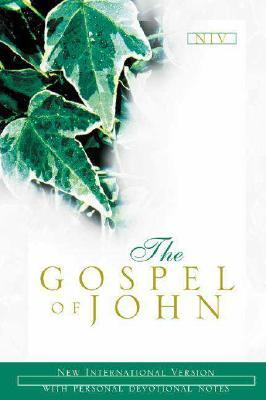
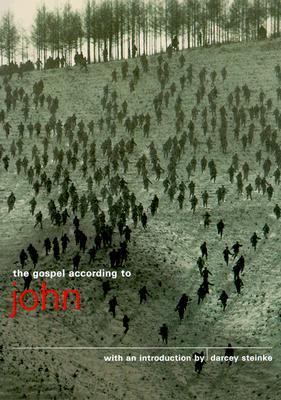

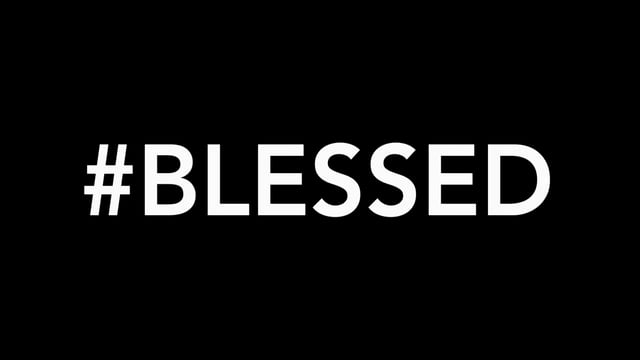
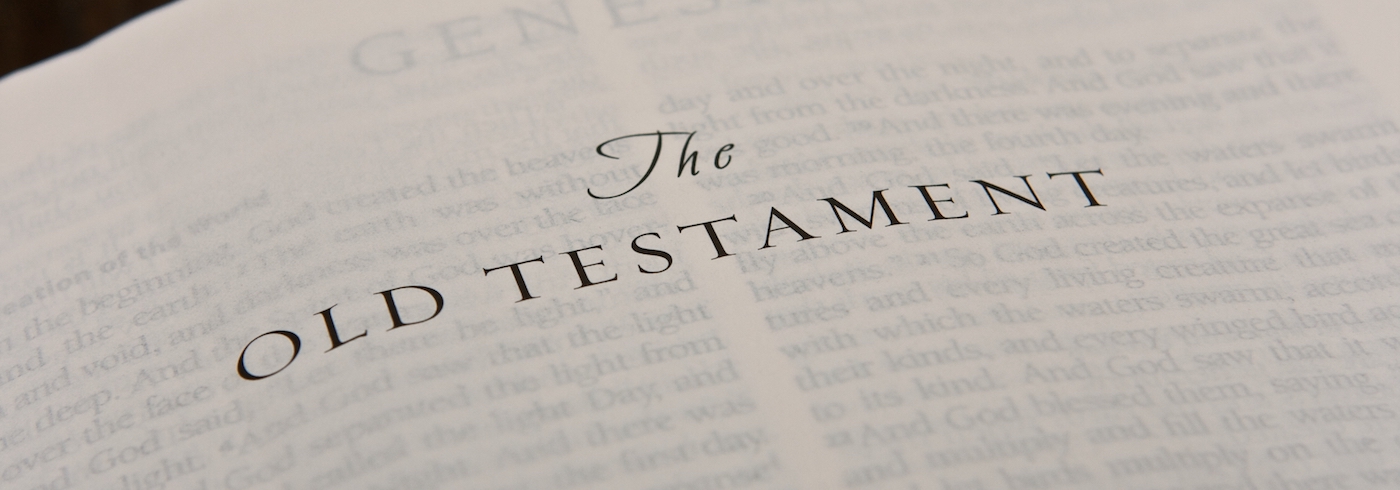
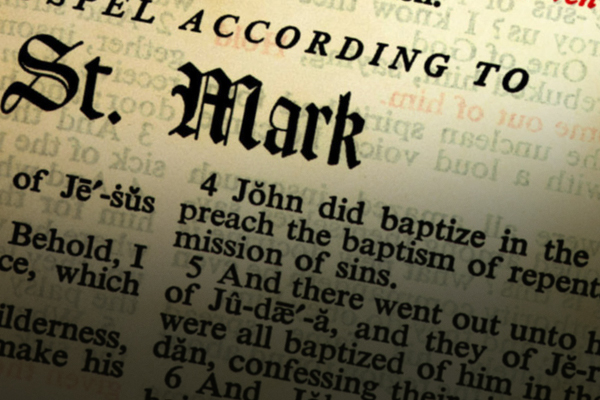
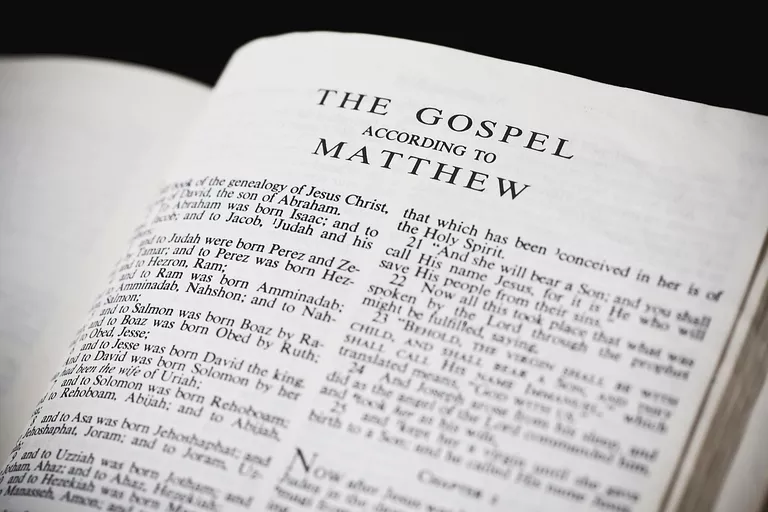
 RSS Feed
RSS Feed